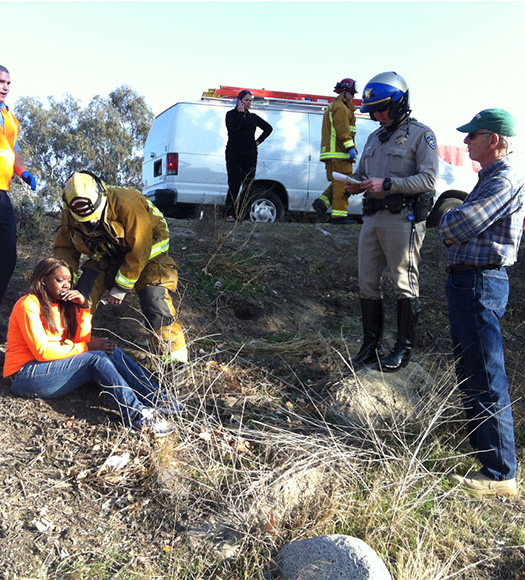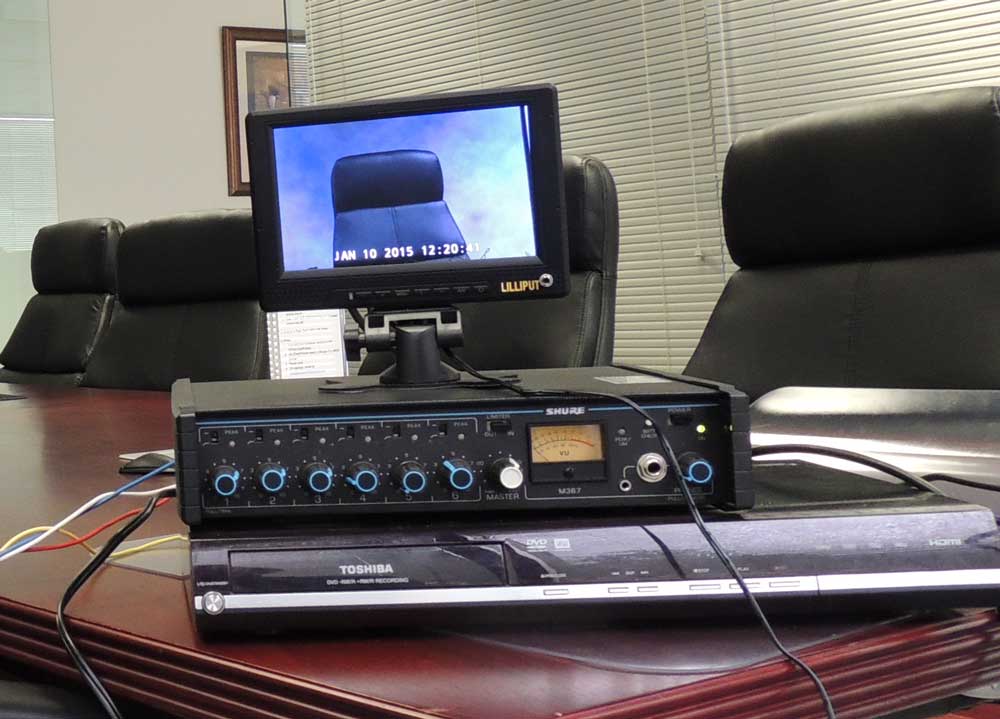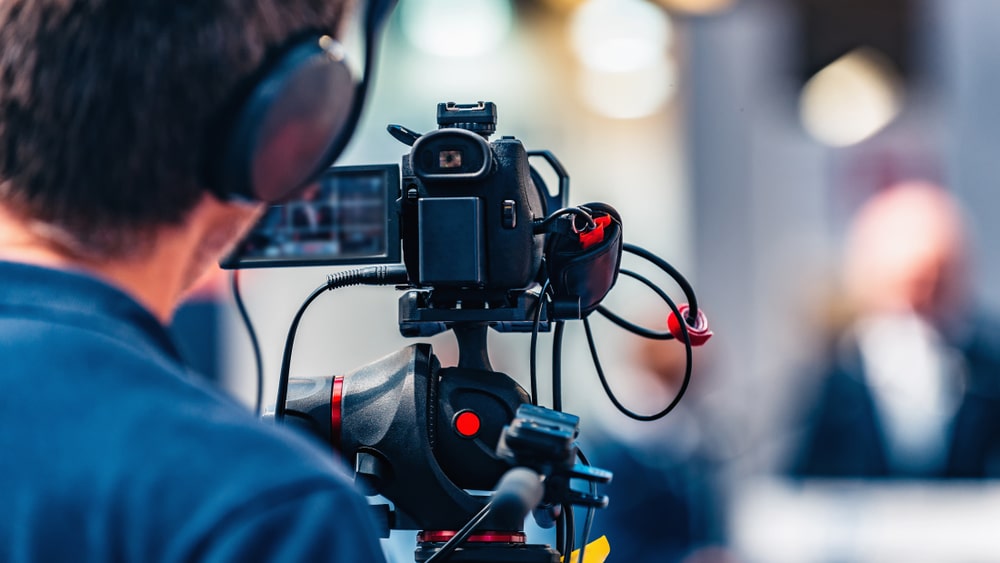What attorneys should know about storing and editing legal video depositions
Wiki Article
The Relevance of Lawful Video Depositions in Modern Legal Services: What You Need to Know
Lawful video depositions have come to be necessary in today's legal landscape. They provide a multidimensional sight of witness statements that conventional transcripts merely can not match. By catching both verbal and non-verbal communication, these depositions enhance the total understanding of a witness's integrity. The effectiveness of video depositions hinges on different aspects, consisting of conformity with lawful requirements and best techniques. Checking out these components exposes their real importance in modern legal solutionsWhat Are Legal Video Depositions?
Lawful video depositions function as an essential device in the lawsuits process. They include videotaping witness testimonies in a video layout, recording both non-verbal and verbal interaction. This approach allows attorneys to document the temperament, expressions, and reactions of witnesses, offering a richer context for the statement. Typically conducted in a controlled atmosphere, these depositions are led by lawyers that ask inquiries while a court reporter records the dialogue. The resulting video can be vital for test prep work, as it makes it possible for lawyers to evaluate the integrity of witnesses and improve their approaches. Additionally, legal video depositions can be utilized in various legal contexts, ranging from civil disputes to criminal cases. The visual and auditory components of video clip depositions boost the discussion of proof, making it a crucial part in the modern-day lawful landscape. Generally, they add significantly to the effectiveness and efficiency of legal proceedings.
Benefits of Video Clip Depositions Over Typical Approaches
Video clip depositions use many advantages compared to traditional approaches of taking witness testaments. One substantial advantage is the capability to capture both aesthetic and audio components, supplying a much more extensive record of the witness's statements. This twin style improves clarity and permits lawyers to reference specific subtleties throughout trial prep work. In addition, video depositions promote remote participation, making it easier for witnesses who may be not available for in-person looks due to geographical constraints or health and wellness issues.Moreover, video depositions can accelerate the general deposition procedure, lowering the time and prices connected with travel and logistics. They additionally improve accessibility, as videotaped depositions can be quickly shared amongst legal groups and referenced at any moment. This convenience adds to better instance management and prep work. In general, video clip depositions represent a contemporary, efficient technique to gathering witness statements, aligning with the progressing needs of the legal career.The Role of Body Movement and Tone in Testimonies

In legal video depositions, body movement and tone play essential roles in communicating a witness's reputation and trustworthiness. Nonverbal hints can give understandings into a witness's emotion, influencing exactly how their testament is regarded. Understanding the impact of these aspects is necessary for lawyers and jurors alike when evaluating the dependability of a statement.
Nonverbal Communication Insights
While spoken interaction is commonly stressed in lawful testaments, nonverbal signs such as body movement and tone play an important role in conveying integrity and feeling. Onlookers of depositions might keep in mind that a witness's pose, gestures, and facial expressions can significantly influence understandings of dependability. Consistent eye contact might signify confidence, while avoiding gaze can recommend deceit or discomfort. Similarly, the intonation-- its rate, quantity, and pitch-- can pass on feelings of genuineness or unpredictability. Attorneys should be attuned to these nonverbal signals, as they usually supply crucial context that complements talked words. Understanding these nuances can improve the effectiveness of depositions and affect the outcome of lawful procedures.Psychological Tone Influence
The psychological tone conveyed throughout legal testimonies substantially impacts just how a witness is viewed. Body movement, vocal inflections, and faces play important duties in shaping the story of a statement. A witness showing confidence via stable eye call and a calm tone can impart a feeling of dependability and involvement. Conversely, indicators of anxiety, such as fidgeting or an unstable voice, might result in apprehension regarding their account. The nuances of emotional expression can influence the analysis of realities, making it vital for lawful professionals to acknowledge these signs. In video clip depositions, the acoustic and aesthetic components combine, highlighting the value of emotional tone in communicating genuineness and reliability within the lawful process.Trustworthiness and Reliability
A vital element in developing reputation and trustworthiness during statements exists in the witness's body movement and intonation. Viewers often rely upon non-verbal hints-- such as eye get in touch with, pose, and motions-- to examine a witness's genuineness. A witness that keeps eye call and presents open body language might be viewed as more truthful and dependable than one who avoids eye call or shows up closed off. Additionally, tone of voice plays an essential duty; a constant, tranquil tone can strengthen the reliability of the testimony, while fluctuations in pitch or quantity may increase uncertainties. Inevitably, the combination of body language and singing tone considerably influences how a witness's declarations are gotten and interpreted in a lawful context.Finest Practices for Conducting Video Clip Depositions
Carrying out video depositions calls for careful preparation and execution to assure a efficient and clear discussion of statement. First, it is very important to select a silent, well-lit place to minimize disturbances and safe optimal video clip quality. The devices should be tested in development, consisting of electronic cameras, microphones, and illumination, to avoid technological concerns during the deposition.Next, parties entailed need to examine the style and treatments ahead of time, seeing to it that everybody recognizes their roles. The deponent should be oriented on the procedure, including exactly how to respond plainly and concisely.Additionally, preserving a specialist demeanor throughout the session is crucial. This includes avoiding from speaking over each other and verifying that all inquiries are routed suitably. It is crucial to tape the deposition in a style that permits for very easy playback and testimonial, preserving the integrity of the testimony for future use.Legal Considerations and Compliance Issues
How helpful resources do legal considerations and compliance issues impact the effectiveness of video depositions? Legal experts need to navigate a complicated landscape of guidelines, making certain that video clip depositions abide by administrative policies and requirements. Compliance with laws concerning personal privacy, authorization, and videotaping approaches is crucial. For circumstances, getting explicit permission from all parties involved is essential to stay clear of legal repercussions.Additionally, the admissibility of video proof in court can depend upon compliance with procedural needs. Making sure that the equipment used fulfills technological standards is additionally crucial, as low quality can threaten the deposition's reliability.Moreover, attorneys have to know any details state legislations that govern video clip depositions, as these can vary substantially. Failure to resolve these considerations can not just endanger the integrity of the deposition however also affect the overall situation strategy, inevitably affecting the customer's legal results.How Video Depositions Influence Jury Assumption
While video depositions can work as effective tools in legal proceedings, their influence on court understanding is considerable. The aesthetic and acoustic elements of video clip recordings supply jurors with a more detailed understanding of witness disposition, reliability, and psychological feedbacks. This multimedia method can improve the jurors' capacity to evaluate the dependability of testament compared to standard text-based transcripts.Moreover, video clip depositions permit jurors to observe body language, tone of voice, and face expressions, every one of which can influence their interpretation of the witness's statements. The existence of a witness on display can humanize them, cultivating compassion and connection, which may persuade jurors' viewpoints. Alternatively, a witness that shows up unreliable or incredibly elusive on video clip might bring about adverse perceptions that influence a jury's decision. Ultimately, the dynamic nature of video depositions plays an important function fit exactly how jurors translate proof and reach their decisions.The Future of Video Clip Depositions in Legal Method
As innovations in modern technology proceed to improve the lawful landscape, the future of video clip depositions is poised for considerable development. Developments such as man-made intelligence, virtual reality, and enhanced video conferencing devices are anticipated to enhance the deposition procedure and enhance ease of access. Lawyers may make use of AI-driven analytics to analyze witness reputation and instance stamina much more effectively.Moreover, the integration of virtual fact can enable juries to experience immersive simulations of depositions, providing much deeper context and understanding. Furthermore, the trend toward remote depositions is most likely to continue, providing better adaptability for customers and attorneys alike.As remote work comes to be progressively normalized, video clip depositions will likely end up being basic practice, lowering expenses and time constraints related to conventional methods. On the whole, these technological advancements assure to enhance the performance, efficiency, and accessibility of video clip depositions in legal method, ultimately changing how lawful professionals prepare for test.Frequently Asked Concerns
Just How Much Do Legal Video Clip Depositions Usually Price?

Can Video Depositions Be Utilized in Any Type of Instance?
Video depositions can be used in numerous kinds of situations, consisting of civil, criminal, and family members law. Their versatility permits attorneys to present witness statements effectively, adapting to the certain demands of different legal circumstances.What Tools Is Required for a Video Deposition?
To conduct a video deposition, necessary tools includes a premium electronic camera, microphone, lights, and a dependable recording gadget. Furthermore, a computer with modifying software program may be essential for post-production and formatting the last video.The length of time Does a Regular Video Clip Deposition Last?
A typical video deposition lasts between two to four hours, depending on the complexity of the case and the number of questions posed. Extended sessions may occur, but breaks are usually incorporated for individual convenience.

Are Video Clip Depositions Admissible in Court?
Video clip depositions are usually permissible in court, given they comply with lawful requirements and policies Visit Your URL of evidence. Their use enhances clarity and maintains witness testament, assisting in the judicial procedure during hearings and tests. Lawful video clip depositions have become important in today's lawful landscape. In addition, lawful video depositions can be utilized in numerous lawful contexts, ranging from civil disputes to criminal instances. In addition, video depositions help with remote participation, making it less complicated for witnesses that may be not available for in-person appearances due to geographical restraints or health and wellness issues.Moreover, video depositions can quicken the general deposition process, lowering the time and expenses associated with traveling and logistics. Making sure that the equipment made use of satisfies technical criteria is also vital, as bad quality can threaten the deposition's reliability.Moreover, attorneys have to be conscious of any certain state laws that control video depositions, as these can differ significantly. In addition, the pattern towards remote depositions is likely to linger, providing better flexibility for clients and lawyers alike.As remote work comes to be increasingly stabilized, video clip depositions will likely become typical practice, lowering costs and time restrictions linked with conventional approaches.Report this wiki page